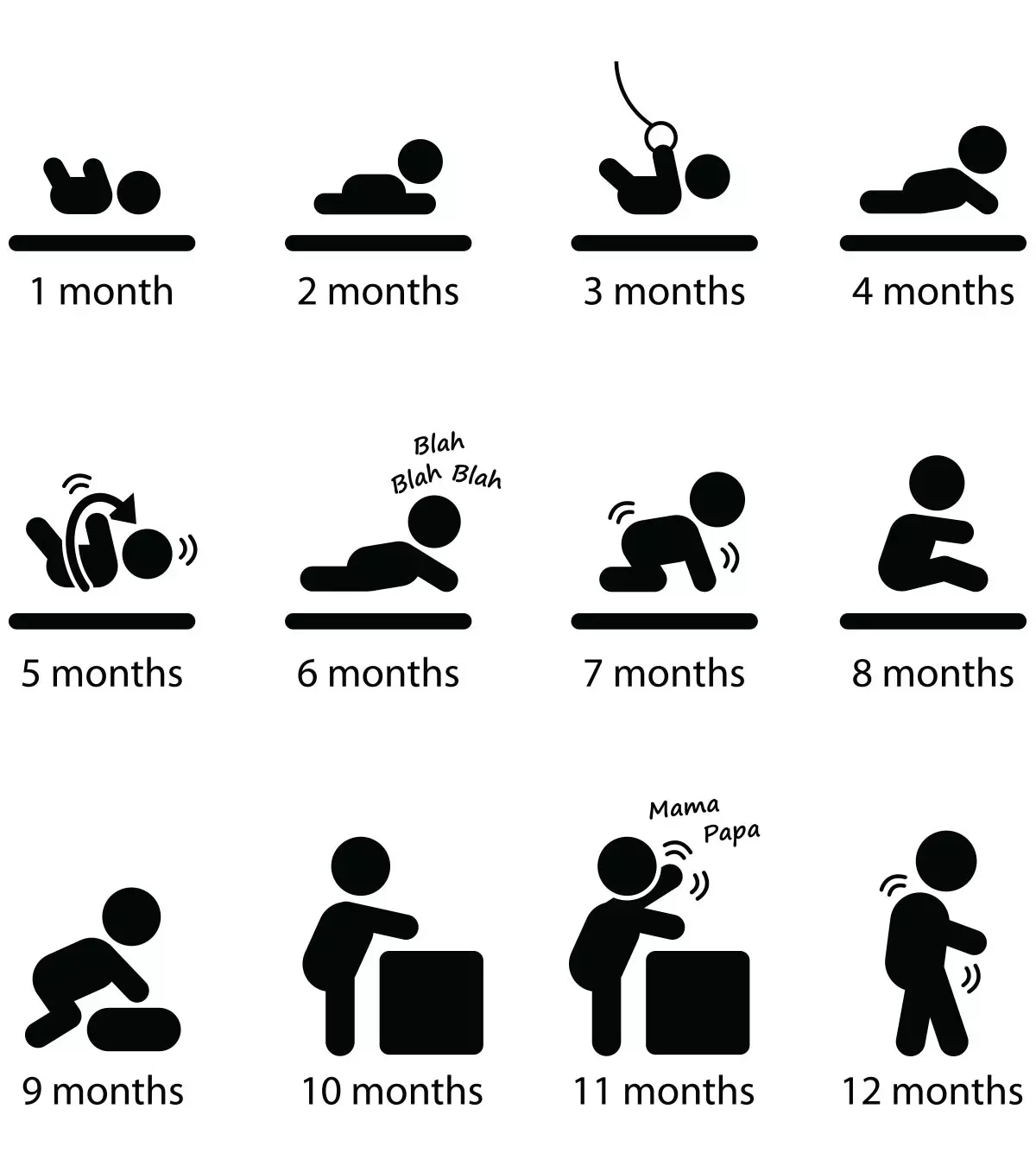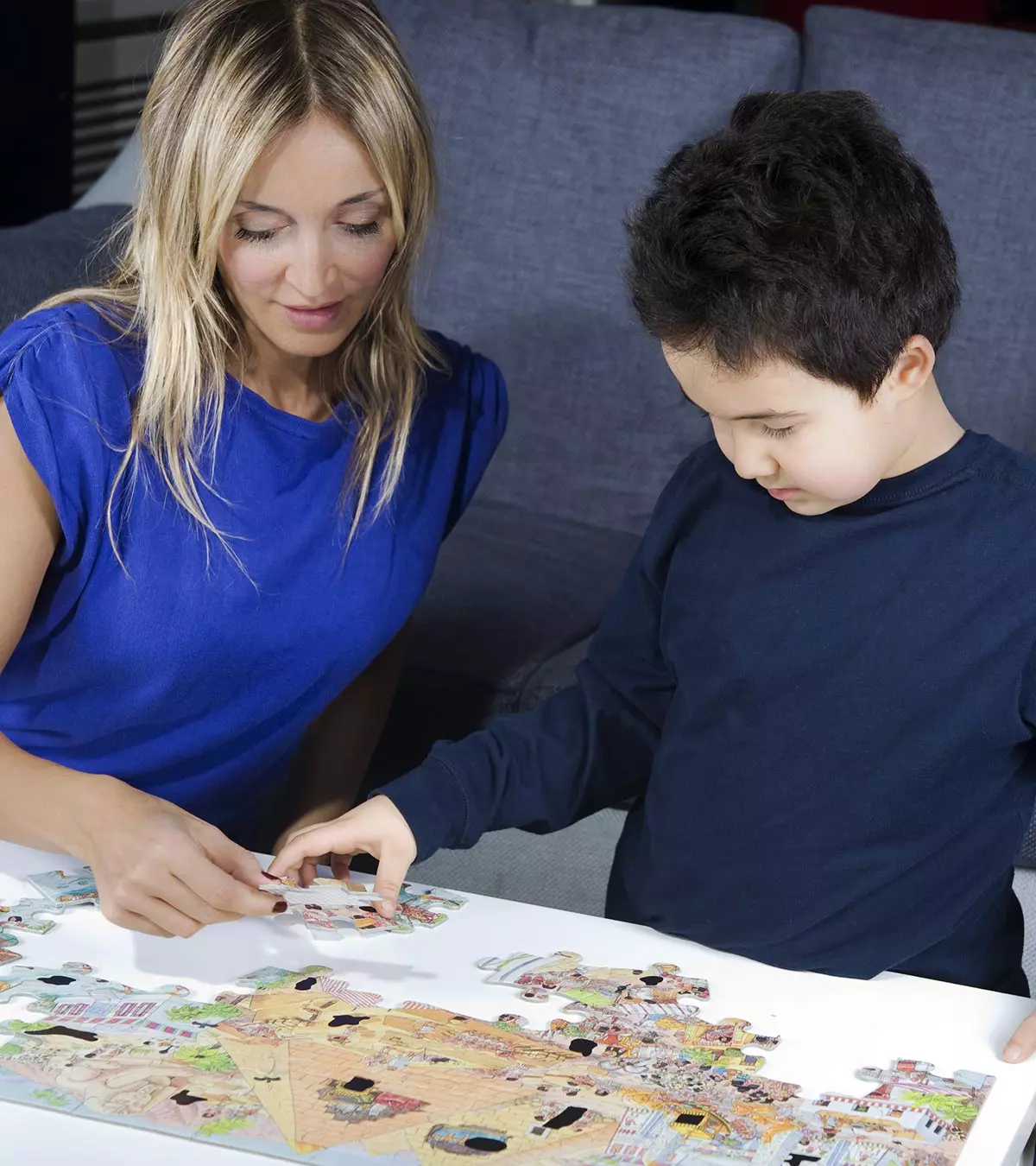
Image: Shutterstock
In their own way, every child is unique and special. However, some may require extra help to navigate their everyday activities. Parenting children with special needs may require extra effort as they need help to tide over a medical condition, a pre-existing disease or syndrome, a learning disability, or an emotional issue.
Compared to children without special needs, these children face specific challenges that may require additional assistance in school and at home. Keep reading this post to learn more about the special needs children may have and for some tips to help you better address their needs.
Key Pointers
- Special needs children can have physical limitations, emotional needs, behavioral issues, developmental difficulties, and sensory impairments.
- The requirement of assistance may vary for each child with a disability, depending on the severity and type of disability.
- Asking for help, a strong support system, self-care, nurturing siblings relationships, and sharing responsibility can help the parents address their child’s special needs.
Types Of Special Needs Children
Children with special needs are categorized into four main types (1) (2).
1. Physical
Special needs children with physical disabilities face problems performing regular body movements and coordinating activities. Some common examples of physical issues in these children include muscular dystrophyiA group of inherited diseases characterized by progressive weakness and degeneration of the skeletal muscles. , epilepsyiA neurological disorder characterized by recurrent seizures. , cerebral palsyiA group of neurological disorders that affect movement and coordination caused by damage to the brain. , and multiple sclerosisiAn autoimmune disease causing damage to the brain, spinal cord, and optic nerves. . These physical issues can be caused due to genetics, spinal cord injury, brain damage due to trauma, or any serious illness. Children with physical problems often require special health care support.
2. Developmental
Children with developmental needs could have any of these conditions: Down’s Syndrome, Fragile X syndromeiA genetic disease causing developmental delays and physical disabilities in children. (FXS), autism, dyslexia, dyscalculia, dysgraphia, dyspraxiaiA developmental disorder that affects a child's ability to plan, organize, and execute movements. , aphasia or dysphasiaiA disorder that affects a child’s ability to speak and understand language. , auditory processing disorder, or visual processing disorder.
Most developmental disabilities in children usually begin before a child is born, while a few can begin during their growing years, caused by an illness, infection, or trauma. In most cases, the developmental delays in children may arise due to a mix of factors, including genetics, parental health during pregnancy, complications during birth, and exposure to environmental toxins.
3. Behavioral/emotional

Image: Shutterstock
Children with emotional or behavioral needs usually have attention deficit disorder (ADD)iA neurodevelopmental disorder affecting the child's ability to pay attention, control impulses. , bipolar disorder, or oppositional defiant disorderiA behavioral disorder in children characterized by disobedience to authority. and may show the following characteristics.
- Difficulty in communication and collaboration with others
- Inability to maintain personal relationships
- Loneliness or depression
- Hyperactivity or impulsive nature
- Signs of emotional instability
- Short temper and irritability
4. Sensory impaired
These children have sensory impairments that affect one or more of their senses, including vision, hearing, smell, touch, or spatial awarenessiBeing conscious of your surroundings and where you are in relation to them. . There can be many reasons for sensory impairments in children, the most common being injury and infection. In most cases, genetics and environmental factors are responsible. Children with this disability may have difficulty receiving and responding to information.
Do All Special Needs Children Require The Same Assistance?
Although all special needs children require extra care and help, their needs may vary. While some may be born with a disorder or disability, others may develop a disability after their birth and during their growing years.
Based on the specific need, each special needs child requires specific assistance to achieve their physical, academic, emotional, and developmental milestones.
Early intervention is helpful in most cases (3). For example, if a child with hearing impairment is evaluated early and provided proper treatment, it drastically improves the child’s chances of hearing, and they might not need much assistance later in life.
However, in the case of a special needs child with cerebral palsy, they will require long-term help and assistance and even throughout their life. So, although all special needs children require assistance, their needs may differ. Irrespective of the help they need, acceptance is a must, and you should handle it with patience, love, and respect.
How To Address The Needs Of Special Children?
Parenting a special needs child can be challenging, and sometimes, it can take a toll on your mental and physical health. Here are a few things that you can consider to make things easier for you and your child (4).
1. Have a strong support system

Image: Shutterstock
In your endeavor to provide the best support to your child, you may forget to take care of yourself. And sometimes, you could feel you are alone. But, the truth is, there are other parents who are going through the same situation.
Connecting with other parents of children with disabilities can help you establish a strong support system for yourself and your child. This can go a long way in keeping yourself mentally strong and emotionally stable, which in turn could help you give your best for your child.
2. Do not hesitate to ask for help
No matter how well you know your child, there are times when you may be confused and frustrated too. Ask for help! There is nothing wrong with asking for help or more information and guidance on making life better for your child and ensuring their safety.
Speak with your
- Child’s pediatrician for any queries regarding your child’s health or other specialists when required.
- Child’s teacher about how you can help your child in their academics.
- Friends and family and seek them to relax, unwind and calm your mind.
3. Nurture sibling relationships
If your special needs child has siblings, your job might seem harder as you try to give your best to each child. It is common for siblings to feel ignored as your special needs child demands more care and attention. Make sure you reinforce sibling bonds and your bond with each child by giving them undivided attention, participating in each child’s daily activities, and performing activities involving each child. Try to build a team culture and an atmosphere of inclusion at home, so all your children know they are one family. This will also affect their self-esteem positively.
 Quick tip
Quick tip4. Give yourself some “me time”

Image: Shutterstock
In your quest to be a good parent to your child, do not forget yourself. Giving yourself me-time allows you to recharge your batteries. Here are some ways you can pamper yourself:
- Take some time out every day to do what gives you mental peace. Do not compromise on this time.
- Take up an activity that helps you relax, whether it is making a simple cup of coffee or indulging in a hobby.
- Mingle with other children with special needs and their parents. A change of environment can work wonders. Meeting new people and indulging in activities that involve others in similar situations can be fun and refreshing for you and your child.
- Get your daily dose of exercise or workout. This can help improve your physical and mental health.
5. Protect your relationship with your spouse/partner
Partners or spouses co-parenting a special needs child often tend to devote their entire time and energy to their child that they forget to give each other time. This can be detrimental to the relationship in the long run. Good communication, understanding, empathy, time-offs, spending time together, and showing compassion to each other are some ways to make sure your relationship with your partner gets stronger and does not go downhill. Try to spend time together by taking the help of grandparents, extended family, or if possible, babysitters, for much needed breaks in the form of coffee dates or dinners.
Kate Swenson talks extensively about raising her child with autism and how alone she felt in the initial years. In her blog and YouTube channel, Finding Cooper’s Voice, she discusses its impact on her marriage with her husband, Jamie. She says, “Jamie and I had a very happy marriage. Right after we got married, I became pregnant and suffered a heartbreaking miscarriage. We got pregnant again and I dove right into it. Cooper was born and right away I knew something was off. He was never content, had trouble feeding, and would not sleep for more than 45 minutes. He discovered the TV and cartoons in his first year and we were overjoyed that we had figured out how to make him happy. He didn’t do anything but watch TV. At the time, I didn’t know what autism was and didn’t think Cooper was autistic. This was really hard on our marriage because I dove in headfirst into research. That was the only thing I could talk about. I was telling my husband and family that there was something wrong with Cooper, but no one understood the seriousness of the situation.
“The weight of doing all this alone built up on me and Jamie said I was turning into a martyr. All I needed was someone to be right next to me. I felt like I was celebrating the successes and grieving the failures all by myself. So one day I just said, ‘It would be easier if I do this by myself.’ We ended up filing for divorce and went through with it. He came in to see Cooper and help around but I kept the boys for six days a week. Jamie and I met for lunch one day and I just broke down. I told him how much I felt like a failure – how I’d pushed my husband away, how much I had isolated us, and worn myself down to nothing. We hugged each and cried at this restaurant in front of everyone, and he assured me that we were going to try our hand at raising Cooper together again. He told me I didn’t have to do all this alone anymore (i).”
Frequently Asked Questions
1. What challenges may I face as a parent to a child with special needs?
Parents of children with disabilities may often experience many parenting problems, such as an increased financial burden to support the child, increased stress, lower quality of life, feeling frustrated or isolated, and physical and mental health issues (5). Learning about the child’s condition, identifying effective treatment and resources, and dedicating innumerable hours to meeting therapy professionals, teachers, doctors, and advocates are some other challenges you may face (6). So you must know effective strategies for coping with these challenges.
2. How should I raise a child with special needs?
Raising a child with special needs can be challenging as the special needs are added to the usual parental responsibilities. Learning all about the child’s condition, encouragement of independence, engaging with the child’s teachers and school, and getting them involved in different play and activities are some ways you can support your child with special needs. You should consider joining a local or an online support group for your mental health.
3. What resources are available to parents of special needs children?
The resources available to support parents of special needs children include support groups, therapy services, educational programs, and government assistance. Parents can also seek support from online communities, parent training programs, and websites tailored to the specific needs of families with special needs children.
4. How do family dynamics change when parenting a child with special needs?
From redistributing roles and responsibilities to centering their decision-making approaches and priorities around the child, the family dynamics of parents with special needs undergo various changes. However, the family often adapts to support the child’s specific needs, developing resilience, compassion, and a sense of togetherness.
Parenting a child with special needs can bring along several challenges. It might require you to learn and unlearn a lot of things and show more resilience. Your needs may vary based on your child’s routine. A robust support system can help you a lot. Do not hesitate to ask for help. Caring for a child with special needs can take a toll on your and your family’s mental health. Consider seeking help from a certified therapist or local and online support group of parents of children with similar conditions.
Infographic: How To Raise Special Children?
When parenting a child with special needs, you may face unique challenges. The infographic below will help you learn valuable tips when parenting a special child to make your parenting journey a rewarding experience. These tips will also help create a loving and nurturing environment for your child’s growth.

Illustration: Momjunction Design Team
Illustration: Helpful Tips For Parenting Children With Special Needs

Image: Dalle E/MomJunction Design Team
Raising a child with special needs has its own challenges and rewards. In this video, a mom shares her personal experience raising a special child. If you’re a parent of a child with special needs, this video is a must-watch!
Personal Experience: Source
MomJunction articles include first-hand experiences to provide you with better insights through real-life narratives. Here are the sources of personal accounts referenced in this article.
i. How having an autistic child affected my marriage;https://www.youtube.com/watch?feature=shared&v=KtG3pwbSYEM
References
1. Four Major Types of Special Needs Disabilities; Lisalandman.net
2. Developmental Disability Basics; Centers for Disease Control and Prevention
3. Children with Special Needs, Special Needs Planning
4. Survival Tips for Special Needs Parents; The Center for Parenting Education
5. Matthew Joseph Russell, et al.; Use of family disability service by families with young children with disabilities; Developmental Medicine & Child Neurology
6. Parenting Children with Special Needs; Boston Univesity
Community Experiences
Join the conversation and become a part of our nurturing community! Share your stories, experiences, and insights to connect with fellow parents.
Read full bio of Dr. Neha Bhave Salankar
Read full bio of Dr. Meenakshi Maruwada
Read full bio of Harshita Makvana
Read full bio of Apoorva K
















